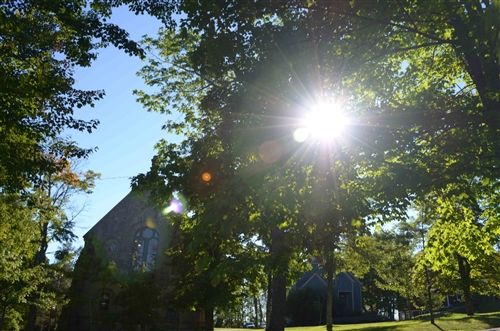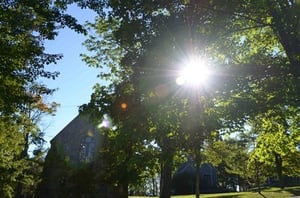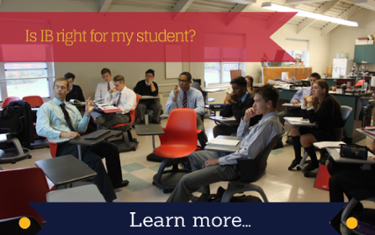Inside King's-Edgehill School

The IB Diploma: Fake News?
 What seemed like a faddish, throwaway statement from a few years ago has become entrenched in the news world. Why is this? Surely if the audience possessed an informed and critical mindset, fake news, and accusations of it would dry up as the discerning eye to truth was applied to the situation and see through any falsehood of reporting. This begs the next question, “How do we get to be experts in subjects?”, and importantly, “How are we able to develop discernment across all knowledge types?”
What seemed like a faddish, throwaway statement from a few years ago has become entrenched in the news world. Why is this? Surely if the audience possessed an informed and critical mindset, fake news, and accusations of it would dry up as the discerning eye to truth was applied to the situation and see through any falsehood of reporting. This begs the next question, “How do we get to be experts in subjects?”, and importantly, “How are we able to develop discernment across all knowledge types?”The answer to the first question is relatively simple, and at the high school level this would imply taking a full slate of IB courses in order to gain maximum depth and breadth learning in each topic area. IB courses are reknown for probing exceptionally long concept trains (depth) in a number of topic areas (breadth). This has a quick appeal to those heading off into the professional world, and can be heard in common statements like, “I need HL Chemistry for my Science degree.” But is this statement complete? Should a person intending to pursue life as a Chemist need only pay attention to the science subjects? What about ethics, connections with other subjects, historical background on issues, or developing knowledge frameworks that can manage the volume of information taken in? The wisdom gained through the core subjects of the IB Diploma programme are specifically developed to fill this need.
The Diploma consists of three IB HL courses and three SL courses along with writing an Extended Essay, taking the Creativity, Activity and Service module, and experience the Theory of Knowledge course. Far from being an “extra” subject, ToK is a cornerstone course that seeks to understand the nature of knowledge, and as such, develop the discernment of students when engaging in the vast flow of modern knowledge. According to the research of Eric Schmidt, in two days we now create as much information as we did from the dawn of time until 2003! In this context, ToK becomes the essential piece in giving us a proper knowledge scaffolding in which we can create order from chaos, and noise from news.
There is a blunt reality here that left unchecked would give pause to even the most brilliant student as they attempt to navigate fact from fiction and understand that the popular or up voted “truths” are not always so. Fittingly, King’s-Edgehill is now giving an “IB Diploma” scholarship of $1000 to those who complete the Diploma. More than money, this a strong statement that the School values academic rigour at the highest level. And this is not fake news! More information can be found here.
To this end, I would like to add the eloquent piece written by our Chaplain and IB English and ToK teacher Rev’d David Curry on the Theory of Knowledge programme:
ToK at King’s-Edgehill School
ToK is an acronym for the Theory of Knowledge course in the International Baccalaureate Diploma programme. The IB through ToK is not about focusing on just one area of interest but on all subject areas. This makes the IB unique because it seeks the integration of all areas of knowledge and inquires into the interplay and overlap as well as the distinctions between each subject. It is in this sense of being cross-disciplinary that ToK is at the core of the IB.
ToK challenges the assumptions about what it means to know in each of the subject areas of contemporary education, exploring the nature of the connections and the legitimate differences between each area of study. The underlying question is what does it mean to say we know something and how do we know? The integrated approach to knowing counters any and all forms of ‘subject chauvinism’- the idea the one subject area is inherently superior to all others - as well as the forms of intellectual solipsism in which students remain locked into just one way of knowing and one silo of study. ToK explores the questions and problems about knowing that belong to the integrity of each subject area as well as examining the ways in which areas of knowledge interrelate and overlap. In general, ToK reveals how the IB is not simply university preparatory but often university equivalent and sometimes at a pretty high level. At King’s-Edgehill, the ToK programme undertakes to expose students to a number of primary texts of philosophy that contribute at a deeper level to the inquiry into the forms of knowing and counter the usual kind of dogmatism that mistakes a partial truth for the whole truth, on the one hand, or the relativism that assumes that since there are different perspectives there is no truth, no reason in the inquiry, on the other hand. It is not about certainties so much as it is about wrestling with the uncertainties and problems about knowing that belong to all subject areas. It is for students who are serious about learning and are prepared to deal with the complexities and confusions of knowing against the forms of reductionism that avoid all such challenges.
Creativity, Action and Service are a fundamental part of the International Baccalaureate Programme. Students learn to appreciate life beyond the world of scholarship, so they can strive to be more. Find out more about our IB Programme here.







